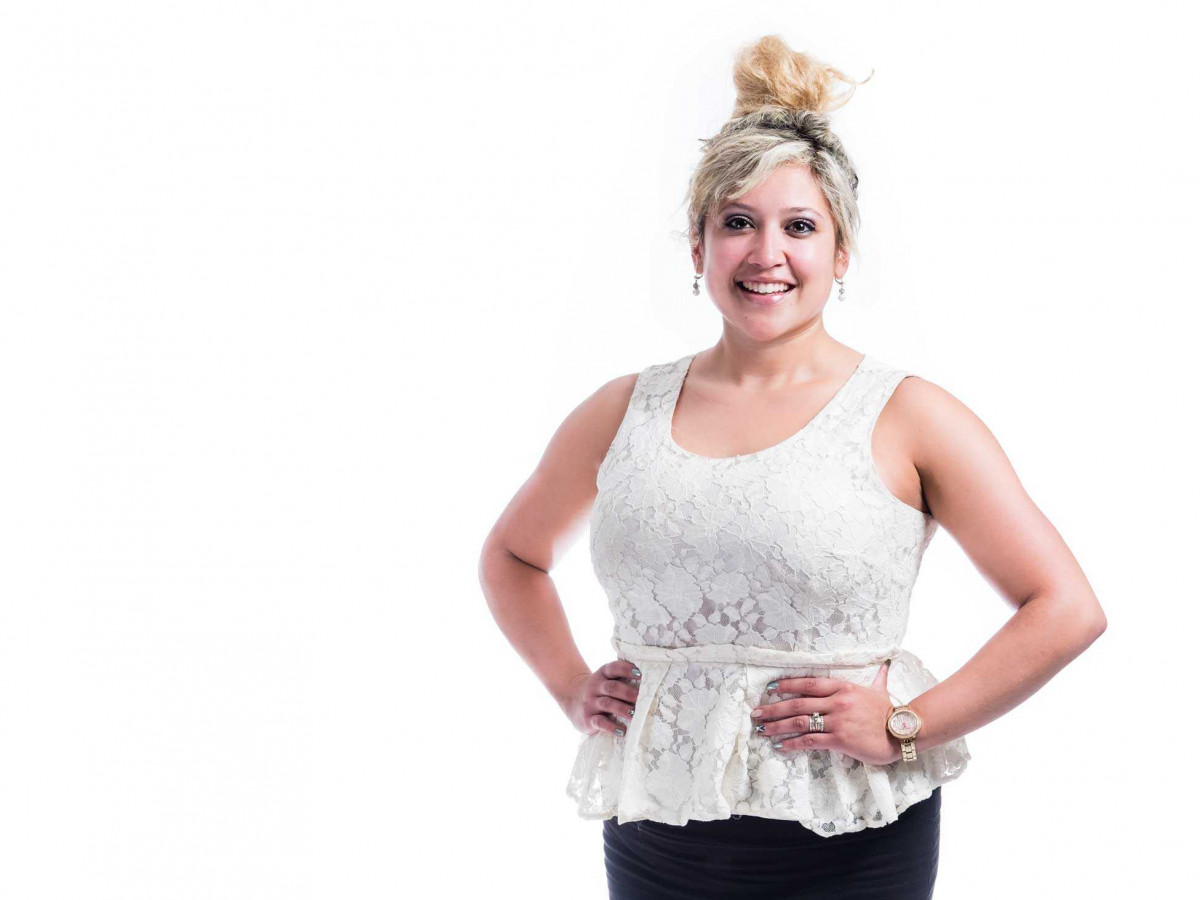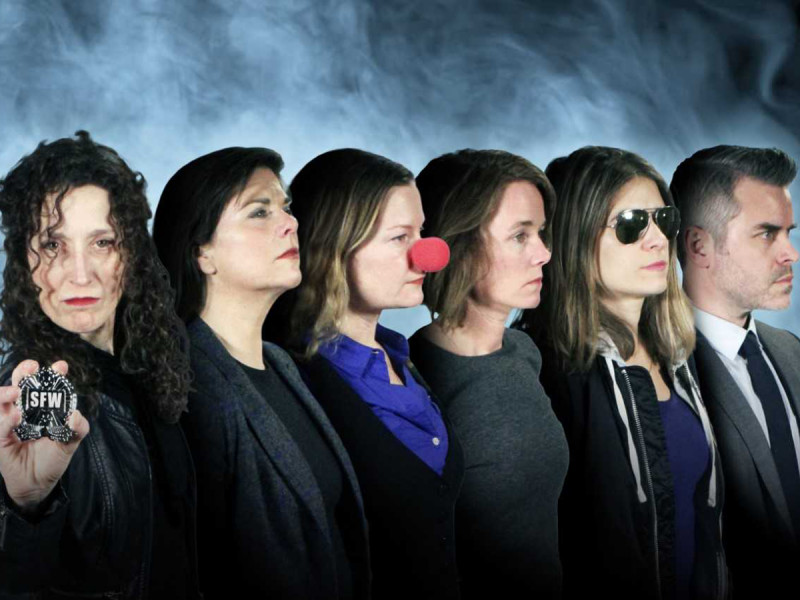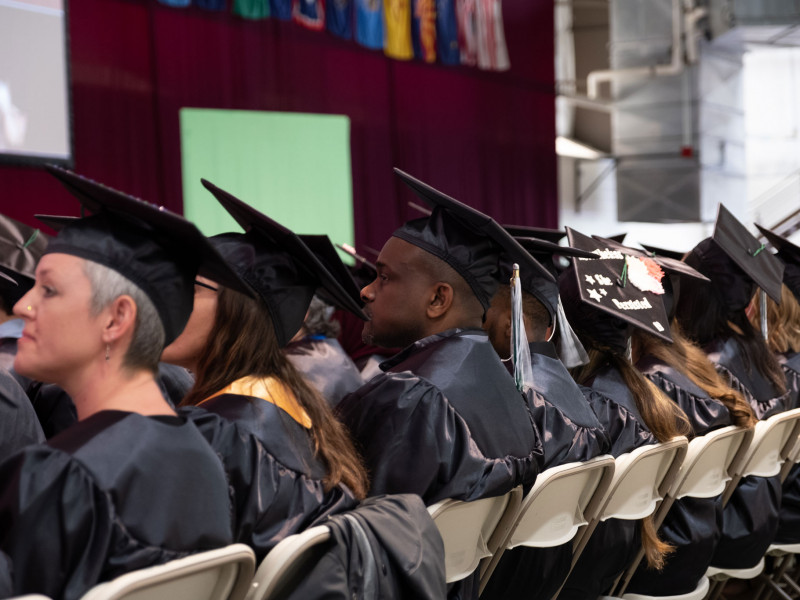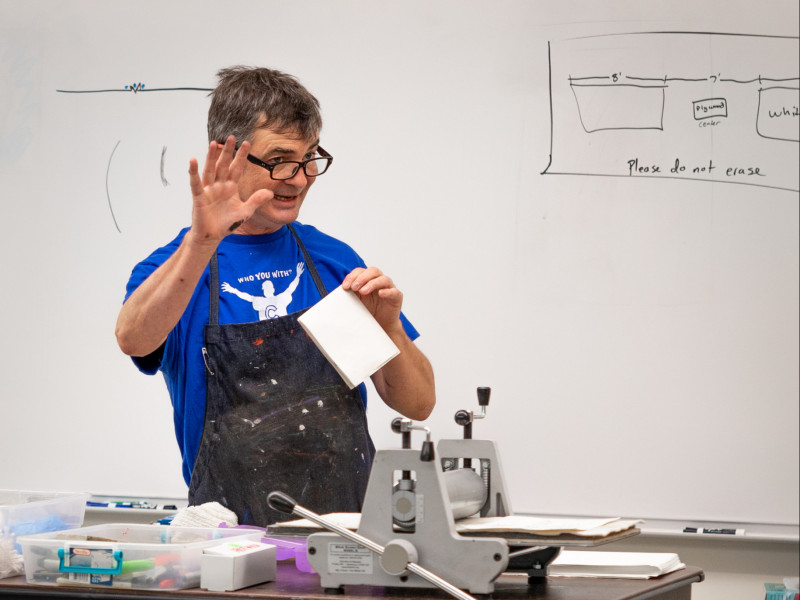
When Stacy Garciadealba was getting ready to graduate from high school, she traveled from her hometown of Grafton to tour colleges all along the East Coast. She left every visit feeling that “this isn’t for me.” She was the oldest in her family, the first child to go through the college process—“I called myself ‘the trial child,’” she said—and she’d be paying her own way. She was determined not to go into debt. She wasn’t sure what she wanted to study. “I wanted to make a really wise choice for my future,” she said. Plus, the thought of living in a dorm surrounded by other women her age was not appealing in the least.
Garciadealba returned from this tour and had a conversation with her guidance counselor. He was disappointed. He knew how much potential she had—she was at the top of her class—but she was firm in her decision. “You’re not paying for my college education,” she told him, “and the traditional route is not the right fit for me.”
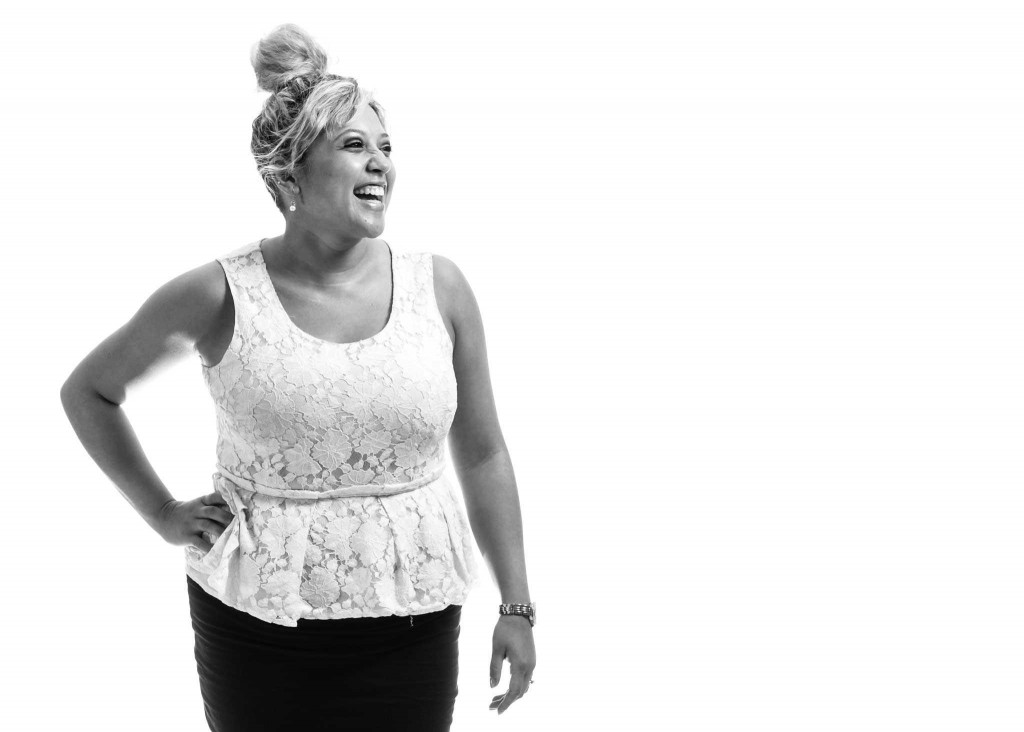
Her mom suggested CCV. They went to the Springfield center together, and met with an advisor, and Stacy left that day signed up for classes, a study abroad trip, and a work study position. But she still wasn’t completely sold on the idea of college. “I had to figure out what I wanted,” she said. “[I thought] ‘I love education and I want that. I want a job that I’m passionate about going to every single day.’” As she dipped her toes into those first classes, things fell into place. “I think once I kind of figured out those pieces, then it became really clear that CCV was going to help…[It] was going to help me not go in debt. It was going to give me opportunities to meet people that I would never have met, while staying in my community.”
At CCV, her instructors treated her as an adult. She was surrounded by other students from all backgrounds and ages. She earned two associate degrees at CCV, because by the time she finished her education degree in 2011 she just wasn’t ready to leave. She stayed for another two years to complete a degree in human services, and went on to a bachelor’s program at Johnson State College.
Her studies at CCV and JSC led Garciadealba to a career in social services. She says the desire to help others is deeply rooted. “When I was in sixth grade we were tasked with a ‘million-dollar project’—you had a million dollars to do something great in the community. I decided I wanted to build an orphanage,” she says, adding, “that goes back even further…I’m adopted, so I think there’s always been a part of me that’s like ‘I want to help other people who were in a similar position.’” She shared that she had the opportunity to visit the orphanage where she’d been living when her parents adopted her. Later, her mother told her about the trip that “‘any time we saw homeless people or people begging for money, or even when we went to the orphanage, you said we had to help them.’ There was something that I have always identified with, and then it just expanded.”
From 2013 to 2017, Garciadealba worked as a Foster Parent Recruitment and Retention Specialist with the Vermont Department for Children and Families, where she was responsible for recruiting foster families in Windsor County—a formidable task. She says the work of finding safe and reliable homes was fast-paced, high-volume, and chaotic. “Your day is hijacked every day.” It wasn’t the kind of job where you get to turn off your phone and tune out at 5:00. “You can’t do that, it’s people’s lives. I’m not gonna say… ‘I’m just going to leave you hanging in the hardest position you’ll ever be in.’ That’s not okay.”
A lack of resources was a constant strain, says Garciadealba. It’s always a struggle to secure financial support as well as families with the time and ability to foster. Yet just as challenging was a lack of understanding and awareness. She says many of her neighbors would prefer to deny that there are children and families in need, or people who are struggling with substance abuse issues. “That’s why the work is so important…there are some towns [that] really just don’t want to hear about it.” She says if she could choose one message to share with the public about that work, it would be “that it’s a community problem. That we all have issues and that it’s our social responsibility to help with those. Sometimes people want to help and they don’t know how. I think there are some people who think social responsibility has nothing to do with their life.”
Recently, Garciadealba took on a new position with the State as an Outreach Specialist for Vermont 2-1-1, a free and confidential network connecting Vermonters to health and human services resources. Covering Orange, Windsor, and Windham counties, she is charged with educating and guiding clients as they access a myriad of resources and services, which ultimately means being a good listener, offering her support, and thinking creatively—and that requires a healthy dose of patience and compassion.
Garciadealba has a spirit for adventure—she loves to travel, often visiting foreign countries to participate in service work, and she took advantage of three study abroad offerings during her time at CCV. But Vermont is her home, through and through. “I love seeing the rest of the world, but it gives me a greater appreciation for where I come from, where I live, and my community…in many ways I feel like [travel] energizes me. It gives me a fresh start so I can come back and do my work in the community that I’m passionate about.”
She says being a student at CCV is what kept her here in Vermont—“in a good way,” she adds. “I moved to Springfield shortly after I enrolled and made these other connections and was like ‘I can’t leave.’ I fell in love with my job and I was like ‘this is my place.’”
As the “trial child,” Garciadealba was the first in her family to graduate from college, although both of her younger brothers followed in her footsteps at CCV. (“I think one of the coolest experiences was having us all enrolled at once and then trying to convince my mom to go back to school.”) She says being the first “was exciting, because when you’re the first at anything it’s new, it’s different, at the same time it’s challenging…It makes you become much more responsible for yourself, and diligent about advocating for yourself.”

